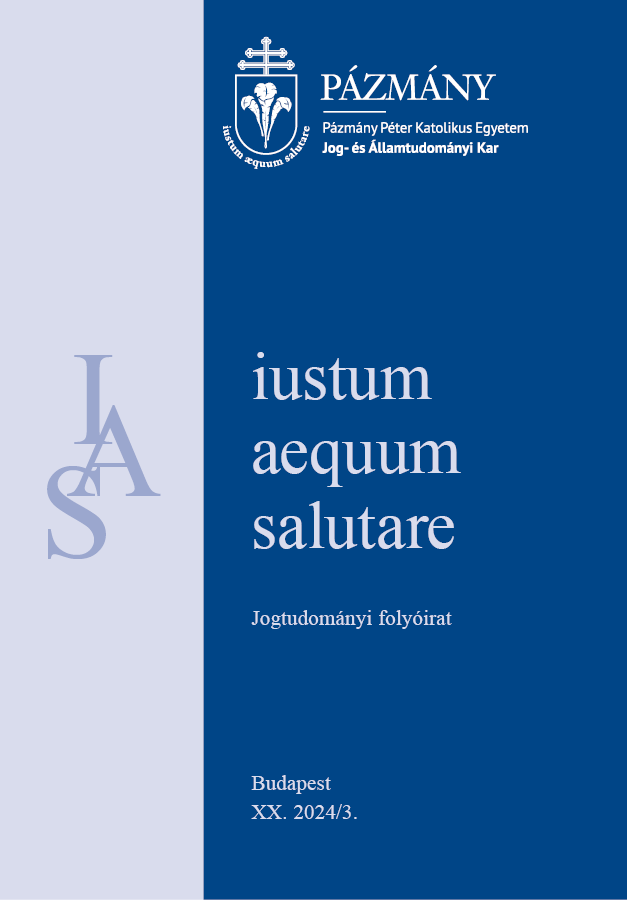A platform alapú munkavégzés dilemmái a Kúria ítélete és nemzetközi tendenciák kereszttüzében
Absztrakt
A platform alapú munkavégzés, mint foglalkoztatási forma az utóbbi években világszerte jelentős figyelmet kapott, amelynek hátterében a digitális gazdaság térhódítása, valamint az ezzel járó új munkajogi kihívások állnak. A tanulmány a Kúria 2023. decemberében kihirdetett ítéletének kontextusában vizsgálja a platform alapú munkavégzésre irányuló jogviszonyok minősítésével kapcsolatos kérdéseket a legújabb európai és amerikai jogalkotási és jogalkalmazási tendenciákat is figyelembe véve. A platform alapú munkavégzés megítélését nehezíti, hogy a foglalkoztatási forma sajátosságai, mint az algoritmus alapú irányítás, az önálló munkavégzés rugalmas keretei, és közvetett irányítási és az ellenőrzési mechanizmusok új megközelítéseket igényelnek a munkajog területén. Gyakran hangoztatott érv, hogy a digitális és algoritmus alapján történő irányítási módszerek elfedik a hagyományos értelemben vett munkáltatói funkciógyakorlást, ezért a munkáltató utasítási, ellenőrzési jogkörét vizsgáló tesztek téves jogértelmezéshez vezethetnek. Ebbe a kontextusba helyezve ellentmondásosnak tűnhet a Kúria ítélete, amely nem minősítette munkaviszonynak a platform alapon foglalkoztatott ételfutár jogviszonyát. Valójában a Kúria másodfokú bíróság döntését korrigáló ítélete pontosan arra mutat rá, hogy az újszerű módszertanra törekvés helyenként olyan munkajogi megközelítésmódhoz közelít, amely irracionális és a munkajog alapintézményeinek jelenleg ismert felfogása mellett contra legem jogértelmezéshez vezethet. A tanulmány a Kúria ítélete és a nemzetközi tendenciák kritikai elemzésével ajánlásokat fogalmaz meg a platform alapú munkavégzés jövőbeli munkajogi szabályozásával kapcsolatban.
Copyright (c) 2024 Hős Nikolett

This work is licensed under a Creative Commons Attribution 4.0 International License.


